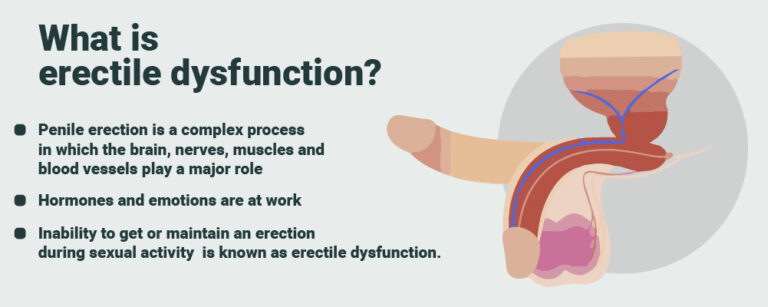Understanding Premature Ejaculation: Causes and Treatment Options

Causes of Premature Ejaculation

Premature ejaculation is a common sexual issue that affects many men. Understanding the causes of this condition can help shed light on potential solutions and treatments. There are several factors that can contribute to premature ejaculation, including physical and psychological elements.
Physically, certain factors may play a role in premature ejaculation. One such factor is an oversensitivity of the penis, where the nerves are more reactive and can easily trigger ejaculation. In some cases, hormonal imbalances, such as low levels of serotonin, may also contribute to the problem. Additionally, certain medical conditions like prostate problems or thyroid issues can have an impact on ejaculation timing. It is important to consult with a healthcare professional to determine if any of these physical factors are contributing to premature ejaculation.
Psychological factors can also influence the occurrence of premature ejaculation. Performance anxiety, stress, and relationship issues can all play a role in this condition. Anxiety about sexual performance, fear of failure, or pressure to please a partner can create psychological tension that can lead to early ejaculation. Additionally, high levels of stress in daily life can affect sexual functioning, making it more difficult to delay ejaculation. It is crucial to address any underlying psychological factors in order to effectively manage and treat premature ejaculation.
In conclusion, premature ejaculation can be caused by a combination of physical and psychological factors. It is important to thoroughly explore potential causes and seek appropriate treatment options. By understanding the root causes of this condition, individuals and healthcare professionals can work together to find the best approach for managing premature ejaculation and improving overall sexual well-being.
Physical Factors Related to Premature Ejaculation
Premature ejaculation is a common sexual concern that can have various physical factors contributing to its occurrence. One physical factor related to premature ejaculation is hypersensitivity. Some men may have an increased sensitivity in the penis, leading to heightened arousal and a quicker ejaculation response. This sensitivity can be influenced by both genetic and environmental factors, making it a complex issue to address. Additionally, certain conditions like prostatitis, inflammation of the prostate gland, can also contribute to premature ejaculation. Inflammation in the prostate can affect the muscles responsible for controlling ejaculation, leading to difficulties in prolonging sexual activity.
Another physical factor linked to premature ejaculation is abnormal hormone levels. Testosterone, a male sex hormone, plays a crucial role in regulating sexual function, including ejaculation. Imbalances in testosterone levels may lead to premature ejaculation. Additionally, other hormone imbalances, such as an increase in the hormone prolactin, can also contribute to the problem. Prolactin inhibits sexual desire and can affect ejaculation control. It’s important to note that hormonal imbalances can be caused by various factors, including genetic predisposition, certain medical conditions, or even the use of certain medications.
Understanding the physical factors related to premature ejaculation is essential in formulating effective treatment plans. By identifying and addressing these contributing factors, individuals experiencing premature ejaculation can find relief. However, it’s important to remember that premature ejaculation is a multifaceted issue, often involving a combination of physical, psychological, and situational factors. Therefore, a comprehensive approach, taking into account both the physical and psychological aspects, is crucial for successful management and treatment of this condition.
Psychological Factors Related to Premature Ejaculation

Psychological factors play a significant role in the development and persistence of premature ejaculation. It is essential to understand how these factors can contribute to this condition to effectively address it. Some common psychological factors associated with premature ejaculation include performance anxiety, relationship issues, and stress.
Performance anxiety is a common psychological factor that can contribute to premature ejaculation. The fear of not satisfying one’s partner or being judged negatively can increase stress levels during sexual activity, leading to early ejaculation. This anxiety may stem from previous negative experiences, self-doubt, or societal pressure to perform.
Relationship issues can also impact sexual performance and contribute to premature ejaculation. Poor communication, unresolved conflicts, or lack of trust can create tension and anxiety, making it difficult to relax during intimate moments. The emotional strain experienced in the relationship can manifest as sexual difficulties, including premature ejaculation.
Stress is another psychological factor that can negatively impact sexual function, including ejaculation control. High levels of stress can increase muscle tension and affect the body’s ability to respond appropriately during sexual activity. In turn, this can lead to a loss of control over ejaculation timing and contribute to premature ejaculation.
Understanding these psychological factors is crucial in addressing premature ejaculation effectively. By working with a healthcare professional or therapist, individuals can explore and address these underlying issues to improve their sexual experience and overall well-being.
Role of Hormonal Imbalance in Premature Ejaculation

Hormonal imbalance can play a significant role in premature ejaculation. Several hormones are involved in the regulation of sexual function, including testosterone, serotonin, and prolactin. Researchers have found that low levels of testosterone, also known as hypogonadism, can contribute to premature ejaculation. Testosterone is responsible for maintaining libido, muscle strength, and overall sexual health. When levels are inadequate, it can lead to a range of sexual dysfunctions, including premature ejaculation.
Additionally, serotonin, a neurotransmitter involved in mood regulation, has been linked to premature ejaculation. Serotonin helps to delay ejaculation, and low levels of this hormone have been associated with the inability to control ejaculation effectively. On the other hand, high levels of prolactin, a hormone responsible for milk production in women, can interfere with sexual function in men. Elevated prolactin levels have been linked to reduced sexual desire and difficulties with ejaculation.
Understanding the role of hormonal imbalance in premature ejaculation can help individuals seek appropriate treatment and guidance. Consulting with a healthcare professional, such as a urologist or endocrinologist, can provide valuable insights and options for managing hormonal imbalances that may contribute to premature ejaculation.
Effects of Anxiety and Stress on Premature Ejaculation

Anxiety and stress are common factors that can contribute to premature ejaculation. When a person experiences high levels of anxiety or stress, it can negatively impact their sexual performance and control. The psychological pressure and fear of underperforming can lead to a heightened state of arousal, making it difficult to delay ejaculation.
Research has shown a strong correlation between anxiety and premature ejaculation. A study published in the Journal of Sexual Medicine found that men with higher levels of anxiety were more likely to experience premature ejaculation. Similarly, stress has been identified as a significant risk factor for this condition. Stress can activate the body’s sympathetic nervous system, leading to a faster heart rate, increased muscle tension, and a decreased ability to regulate ejaculation.
In addition to the psychological aspects, anxiety and stress can also affect the physical functioning of the body. The release of stress hormones, such as cortisol, can disrupt the delicate balance of neurotransmitters involved in ejaculation control. This can further contribute to premature ejaculation by impairing the body’s ability to regulate arousal levels and delay orgasm.
If you find yourself experiencing anxiety or stress that is impacting your sexual performance, it is essential to address the underlying causes and seek appropriate support. Speaking with a healthcare professional, such as a urologist or therapist, can be beneficial in identifying and managing these stressors. Additionally, practicing stress-reduction techniques, such as deep breathing exercises, mindfulness, and regular exercise, can help to alleviate anxiety and improve overall sexual function.
Relationship Issues and Premature Ejaculation
Relationship issues can have a significant impact on sexual experiences, including premature ejaculation. When couples face difficulties in their relationship, such as communication problems, lack of emotional connection, or unresolved conflicts, it can create stress and anxiety during intimate moments. This emotional turmoil can contribute to the occurrence or exacerbation of premature ejaculation.
Intimacy requires a level of comfort and trust, and any disruptions in the relationship can create a sense of unease and tension. The fear of disappointing a partner or the pressure to perform can amplify anxiety and contribute to premature ejaculation. Additionally, relationship issues may result in decreased sexual desire or arousal, further complicating the situation. It is crucial for couples facing relationship challenges to address these issues openly and seek professional help if needed, as resolving these underlying concerns can often improve sexual functioning and alleviate premature ejaculation.
The Link Between Erectile Dysfunction and Premature Ejaculation
Premature ejaculation and erectile dysfunction are two common sexual disorders that can significantly impact a man’s sexual satisfaction and overall quality of life. Although they are separate conditions, there is a link between the two, and they often coexist in many individuals.
Erectile dysfunction, also known as impotence, refers to the inability to achieve or maintain an erection sufficient for sexual intercourse. This can be caused by various factors, including underlying medical conditions, psychological issues, or lifestyle factors. When a man experiences erectile dysfunction, it can often lead to performance anxiety and a fear of not being able to satisfy their partner, which can contribute to premature ejaculation.
On the other hand, premature ejaculation is characterized by the inability to delay ejaculation during sexual activity, leading to unsatisfactory sexual experiences for both partners. While the exact cause of premature ejaculation is not fully understood, it can be influenced by psychological factors such as anxiety, stress, or relationship issues. In turn, the frustration and embarrassment caused by premature ejaculation can further exacerbate the development of erectile dysfunction.
It is important to note that the relationship between premature ejaculation and erectile dysfunction is complex and multifaceted. Both conditions can have physical and psychological components, and addressing one may positively impact the other. Understanding this link allows healthcare professionals to develop personalized treatment plans that target the root causes of both conditions, improving sexual function and enhancing overall well-being.
Effects of Performance Anxiety on Premature Ejaculation
Performance anxiety can have a significant impact on premature ejaculation, creating a vicious cycle of heightened stress and frustration. When an individual becomes anxious during sexual activity, it can lead to a loss of control over their ejaculation. This anxiety may stem from a fear of not satisfying their partner or being judged negatively. As a result, they may experience increased muscle tension and a heightened state of arousal, making it difficult to delay ejaculation.
Research has shown that performance anxiety is a common psychological factor associated with premature ejaculation. In a study conducted on men with this condition, it was found that those with higher levels of anxiety were more likely to experience premature ejaculation. This suggests that managing performance anxiety may be crucial in addressing premature ejaculation issues.
Additionally, performance anxiety can further exacerbate the problem by creating a negative feedback loop. When someone experiences premature ejaculation due to anxiety, they may become fearful of future sexual encounters. This fear can generate even more anxiety, making it more likely for premature ejaculation to occur again. Breaking this cycle often requires addressing the underlying causes of anxiety and implementing effective coping strategies.
Medical Conditions Contributing to Premature Ejaculation
Premature ejaculation is a common sexual issue that can be caused by a variety of factors, including certain medical conditions. These conditions can contribute to the inability to delay ejaculation during sexual activity, causing frustration and distress for both partners. Although each individual’s experience may vary, it is essential to understand the potential medical factors that may be at play.
One medical condition that may contribute to premature ejaculation is an overactive thyroid, also known as hyperthyroidism. This condition occurs when the thyroid gland produces an excessive amount of thyroid hormone. Among other symptoms, hyperthyroidism can lead to an increase in metabolism and anxiety, which may, in turn, affect sexual performance. Individuals with an overactive thyroid may experience heightened arousal and a shorter time to ejaculation.
Another medical condition associated with premature ejaculation is chronic prostatitis, which is the inflammation of the prostate gland. The symptoms of chronic prostatitis can include pain or discomfort during ejaculation, erectile dysfunction, and a reduced ejaculatory control. These physical discomforts can contribute to the difficulty in prolonging sexual activity and delay ejaculation. It is important to note that treating these medical conditions under the guidance of a healthcare professional can potentially alleviate the symptoms of premature ejaculation.
As with any medical concern, it is crucial to consult a healthcare professional for an accurate diagnosis and appropriate treatment options. While medical conditions may contribute to premature ejaculation, implementing a comprehensive and individualized approach tailored to the specific circumstances of each individual is essential for managing and treating this condition effectively.———-
Effect of Medications on Premature Ejaculation

Medications can be an effective option for managing premature ejaculation (PE) when psychological and behavioral therapies alone do not provide satisfactory results. There are several medications available that can help delay ejaculation, providing men with increased control during sexual activity. These medications work by altering certain neurotransmitters in the brain that regulate ejaculation.
Selective serotonin reuptake inhibitors (SSRIs) are commonly prescribed for treating PE. SSRIs increase the levels of serotonin in the brain, which can help delay ejaculation. Commonly used SSRIs for PE include dapoxetine, paroxetine, and sertraline. Studies have shown that these medications can significantly increase the time to ejaculation and improve sexual satisfaction.
Tramadol, a centrally acting opioid analgesic, has also been found to have ejaculation-delaying effects. It works by inhibiting the reuptake of neurotransmitters in the brain, including serotonin and norepinephrine. Tramadol can be an alternative for men who do not respond well to SSRIs or have contraindications to their use.
It’s important to note that these medications should be taken under the guidance and supervision of a healthcare professional. They may have potential side effects, including nausea, dizziness, headache, and insomnia. Additionally, medication should not be seen as a long-term solution for managing PE, but rather as a temporary measure while addressing the underlying causes through psychological and behavioral interventions. It is crucial to consult with a healthcare provider to determine the most appropriate treatment approach for individual needs.
Lifestyle Factors and Premature Ejaculation
Premature ejaculation is a common sexual problem that can have a significant impact on the overall sexual satisfaction of individuals and their partners. While there are various causes of premature ejaculation, certain lifestyle factors can contribute to this condition. Lifestyle choices such as unhealthy diet, lack of exercise, excessive alcohol consumption, and smoking have been associated with an increased risk of premature ejaculation.
Unhealthy diet, characterized by a high intake of processed foods, sugary snacks, and saturated fats, can lead to obesity and other health issues that may contribute to premature ejaculation. Lack of exercise can also negatively affect sexual function, as physical activity plays a crucial role in maintaining overall health and well-being. Excessive alcohol consumption and smoking can impair sexual performance and lead to a higher likelihood of experiencing premature ejaculation. These lifestyle factors not only impact the physical aspects of sexual function but can also have psychological effects, such as decreased self-confidence and increased anxiety. It is important for individuals experiencing premature ejaculation to address these lifestyle factors and make positive changes to improve their overall sexual health.
Psychological Treatments for Premature Ejaculation
Psychological treatments play a crucial role in managing premature ejaculation (PE), helping individuals overcome this distressing condition. One common approach is cognitive-behavioral therapy (CBT), which targets the underlying psychological factors contributing to PE. Through CBT, individuals are guided to identify and challenge negative thought patterns and beliefs that may be exacerbating their condition. This therapy also incorporates techniques such as relaxation exercises and sensory retraining to help individuals gain better control over their arousal levels.
A study published in the Journal of Sexual Medicine found that CBT led to significant improvements in both sexual satisfaction and ejaculatory control among men with PE. Another psychological treatment option is psychoeducation, which involves providing individuals with accurate information about PE and its causes. This approach aims to reduce anxiety and shame associated with the condition, allowing individuals to develop a healthier perspective and better cope with their symptoms. Additionally, couples therapy may be beneficial for addressing relationship issues or communication problems that could be contributing to PE. Through open and supportive dialogue, couples can work together to enhance sexual intimacy and build a stronger connection.
Behavioral Techniques for Managing Premature Ejaculation
Behavioral techniques can play a crucial role in managing premature ejaculation and improving sexual satisfaction for individuals experiencing this issue. One approach that is often recommended is the “stop-start” technique. This involves the individual or their partner stimulating the penis until the person feels they are about to ejaculate. At this point, stimulation is paused, allowing the individual to regain control and delay ejaculation. This process can be repeated several times during sexual activity, gradually helping to increase ejaculatory control.
Another behavioral technique that may be effective is the “squeeze” technique. Similar to the stop-start technique, the individual or their partner stimulates the penis until they reach the point of imminent ejaculation. Instead of stopping, however, pressure is applied to the base of the penis, specifically the area between the shaft and the glans. This pressure can help decrease arousal and delay ejaculation. With practice, individuals can learn to recognize their level of arousal and apply the squeeze technique as needed to prolong sexual activity.
It is important to note that these behavioral techniques require time, patience, and open communication between partners. They may not provide immediate results, but with consistent practice, many individuals have reported improved ejaculatory control and a reduction in premature ejaculation symptoms. It is always advisable to consult a healthcare professional or a sex therapist who can provide guidance and support in implementing these techniques effectively.
Medical Treatments and Procedures for Premature Ejaculation
Medical treatments and procedures for premature ejaculation are available for individuals who experience difficulty in controlling their ejaculation. These treatments aim to provide relief and improve sexual satisfaction for those affected by this condition. There are various medical interventions that may be recommended depending on the underlying cause of the premature ejaculation.
One common medical treatment is the use of topical anesthetics or numbing creams that contain ingredients such as lidocaine or prilocaine. These creams are applied to the penis before sexual activity to reduce sensitivity and delay ejaculation. While they can be effective, it is important to follow the instructions provided by a healthcare professional to avoid potential side effects, such as decreased sensation or transfer of the numbing agent to a partner.
Another medical treatment option for premature ejaculation is the use of oral medications. Selective serotonin reuptake inhibitors (SSRIs), which are primarily used as antidepressants, have been found to have a delaying effect on ejaculation. These medications work by increasing the levels of serotonin in the brain, which can help to regulate ejaculation. However, it is important to note that SSRIs are not specifically approved by regulatory authorities for the treatment of premature ejaculation and are often prescribed off-label.
In certain cases, when other treatment methods have not been effective, a healthcare professional may recommend injections of anesthetic agents directly into the penis. This procedure, known as intracavernous injection therapy, temporarily numbs the penis and allows for greater control over ejaculation. However, these injections are typically reserved for severe cases of premature ejaculation and are considered a last resort due to the invasiveness of the procedure.
While medical treatments and procedures can provide relief for individuals experiencing premature ejaculation, it is essential to consult a healthcare professional for an accurate diagnosis and personalized treatment plan. They will help determine the most appropriate course of action based on individual circumstances and needs. Additionally, it is important to note that premature ejaculation may result from a combination of physical, psychological, and relationship factors. Therefore, a comprehensive approach that addresses these aspects may lead to the best outcomes.
Alternative Therapies and Natural Remedies for Premature Ejaculation
Alternative therapies and natural remedies have gained popularity in recent years as potential treatment options for premature ejaculation. While traditional medical treatments and behavioral techniques are commonly recommended, some individuals prefer to explore alternative approaches that may offer additional benefits or fewer side effects. It’s important to note that the effectiveness of these therapies can vary, and it’s always advisable to consult with a healthcare professional before incorporating them into your treatment plan.
One alternative therapy that has shown promise in managing premature ejaculation is acupuncture. This traditional Chinese medical practice involves the insertion of thin needles into specific points on the body. It is believed to promote the flow of energy and restore balance within the body. Acupuncture may help in premature ejaculation by reducing anxiety, improving blood circulation, and enhancing overall sexual health. Several studies have indicated its potential benefits, but more research is needed to fully understand its mechanisms and effectiveness.
Another natural remedy that has gained attention is the use of herbal supplements. Certain herbs, such as ginseng and ginkgo biloba, are believed to have properties that promote sexual function and performance. These supplements are often marketed as natural remedies for premature ejaculation. However, it’s important to approach herbal supplements with caution, as their safety and effectiveness are not regulated by the FDA. Furthermore, some herbs may interact with medications or have potential side effects. If you are considering herbal supplements, it is best to consult with a healthcare professional who can provide guidance based on your individual circumstances.
In conclusion, alternative therapies and natural remedies may offer additional options for individuals seeking treatment for premature ejaculation. Acupuncture and herbal supplements have shown potential in managing the condition, although more research is needed to fully understand their effectiveness and safety. It’s crucial to consult with a healthcare professional to ensure the appropriate integration of these alternative approaches into your treatment plan.
Are there any alternative therapies for premature ejaculation?
Yes, there are alternative therapies that can be used to help manage premature ejaculation. These may include acupuncture, herbal remedies, yoga, and mindfulness techniques.
Can hormonal imbalances contribute to premature ejaculation?
Yes, hormonal imbalances can play a role in premature ejaculation. Low levels of serotonin, dopamine, and testosterone have been associated with this condition.
How do relationship issues impact premature ejaculation?
Relationship issues, such as communication problems and unresolved conflicts, can lead to stress and anxiety, which can in turn contribute to premature ejaculation.
Is there a link between erectile dysfunction and premature ejaculation?
Yes, there is a link between erectile dysfunction and premature ejaculation. Some men may experience both conditions simultaneously, while others may experience one condition as a result of the other.
Can performance anxiety affect premature ejaculation?
Yes, performance anxiety can have a negative impact on premature ejaculation. The fear of not satisfying a partner or experiencing sexual performance pressure can contribute to this condition.
What medical conditions can contribute to premature ejaculation?
Medical conditions such as diabetes, high blood pressure, and prostate problems can contribute to premature ejaculation. Treating these underlying conditions may help alleviate the symptoms.
How do medications affect premature ejaculation?
Certain medications, such as selective serotonin reuptake inhibitors (SSRIs), have been found to be effective in delaying ejaculation. However, it is important to consult with a healthcare professional before starting any medication.
Are there any lifestyle factors that can contribute to premature ejaculation?
Yes, certain lifestyle factors such as excessive alcohol consumption, smoking, and poor diet can contribute to premature ejaculation. Maintaining a healthy lifestyle can help manage this condition.
What psychological treatments are available for premature ejaculation?
Psychological treatments for premature ejaculation may include cognitive-behavioral therapy (CBT), sex therapy, and counseling. These therapies aim to address the underlying psychological factors contributing to the condition.
What are some behavioral techniques for managing premature ejaculation?
Behavioral techniques for managing premature ejaculation may include the start-stop technique, the squeeze technique, and pelvic floor exercises. These techniques aim to improve control over ejaculation.
Are there any medical treatments or procedures for premature ejaculation?
Yes, there are medical treatments and procedures available for premature ejaculation. These may include topical anesthetics, oral medications, and injections. In some cases, surgery may be recommended as a last resort.






